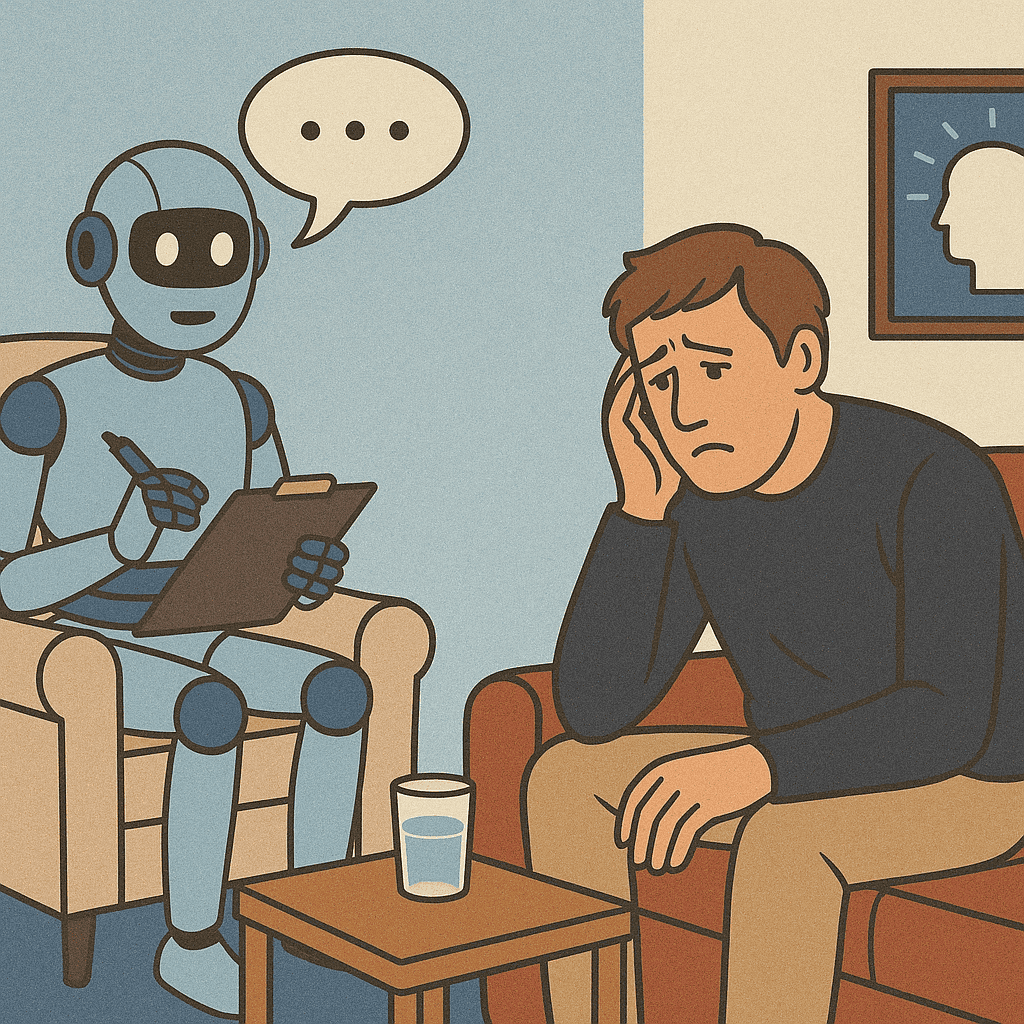By Newsfangled Tech Desk | June 10, 2025
In this article
By Newsfangled Tech Desk | June 10, 2025
The Setup
Mental health care is in crisis, waiting lists are overflowing, and into this chaotic void steps an unlikely saviour: the chatbot. From Woebot to Wysa, AI-powered therapy apps promise 24/7 emotional support, no judgement, and zero hourly fees. But can you really trust your deepest traumas to a digital entity that doesn’t even blink?
The Rise of AI Therapy Apps 2025
Therapy chatbots exploded during the pandemic, when loneliness and lockdown turned smartphones into lifelines. Today, millions of users around the world rely on AI therapy apps 2025 for mood tracking, CBT exercises, and even crisis intervention prompts. These apps boast machine learning models trained on thousands of therapy transcripts—and a surprisingly calming bedside manner.
But critics warn we’re entering murky territory. Dr. Hannah Rees, a clinical psychologist, says: “AI can support, but it cannot replace. We must be careful not to confuse a helpful script with human understanding.”
The Pros
- 24/7 Availability: Chatbots don’t sleep, cancel, or judge.
- Affordability: Free or low-cost options make them accessible to many.
- Anonymity: Users feel safer opening up to a bot than a human.
- Data Insights: Some platforms analyse mood trends better than a diary ever could.
The Creepy Side
- No Accountability: What happens if the bot gets it wrong?
- Privacy Concerns: Are your chats truly confidential, or a training set in disguise?
- Emotional Void: Chatbots can’t detect nuance, sarcasm, or subtle signs of distress.
- Overreliance Risk: Could bots discourage people from seeking human help?
Regulation? What Regulation?
Most AI therapy tools skirt traditional medical regulation by branding themselves as “wellness” or “coaching” apps. This Wild West status means no standard of care is guaranteed. Mental health charities are calling for tighter oversight before vulnerable users are left to spiral alone in a chat bubble.
Human Therapists React
Many mental health professionals recognise the role AI tools can play in providing early support or filling gaps between appointments. However, concerns remain.
“We worry that people will mistake convenience for care,” says registered psychotherapist Amira Shah. “These apps can help with surface-level issues like stress management or mood tracking, but they don’t replace the therapeutic relationship.”
Some therapists also caution that overreliance on chatbots may prevent individuals from developing trust in human therapists, particularly if their first experiences are entirely digital.
Global Growth of AI Therapy Apps 2025
Globally, the uptake of AI mental health tools is growing fast. India, for example, has launched government-backed initiatives using AI to address rural mental health gaps. In the United States, major healthcare providers are starting to integrate chatbot-based tools into their triage systems. Meanwhile, European regulators are actively debating stricter rules to protect user data and ensure transparency around algorithmic decision-making.
Despite regional differences, the core question remains the same: can emotional support be automated—and should it be?
Final Thoughts
AI therapy isn’t a replacement for human connection, but in a system plagued by delays and costs, it may be a temporary crutch for many. The real challenge? Balancing convenience with conscience.
Reader Comments
Have you used an AI therapist? Did it help, or did it feel like talking to Clippy from Microsoft Word? Tell us your experience — especially if it told you to “breathe deeply and hydrate.”
Reader Comments
Have you used an AI therapist? Did it help, or did it feel like talking to Clippy from Microsoft Word? Tell us your experience — especially if it told you to “breathe deeply and hydrate.”


We want to hear your what you have to say